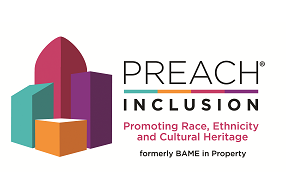The key to inclusion is enabling a true sense of belonging rather than just inviting participation.

The theme for this year’s International Women’s Day movement is ‘Inspire Inclusion’ with the campaign calling for ‘action to break down barriers, challenge stereotypes and create environments where all women are valued and respected’. Initiatives like this are useful for drawing our attention to key themes and generating conversation on how to do better.
‘Diversity is being invited to the party and inclusivity is being asked to dance.’
This is a useful differentiation. However, the staunch feminist in me dislikes the passivity – surely women want to dance without having to be asked; isn’t that what inclusion is really all about?
More traditional definitions of inclusion relate to ‘providing equal access to opportunities and resources for those otherwise excluded or marginalised.’ For organisations, this can translate to policies, procedures and systems to ensure everyone have access to and are invited to participate.
These initiatives are obviously crucial to ensure that women are presented with the same opportunities that are provided to their male counterparts. However, I would argue that inclusivity needs to think beyond the formalised structures that we often put in place. I believe true inclusion looks and feels more like belonging; it is an emotional experience that comprises both structural inclusion and the day-to-day behaviours of those around you. It’s the feeling of believing you have a place on the dancefloor versus waiting for the invite to join in. And this requires action by all of us.
While most of us accept the logic of having a workplace that aims to be inclusive, do we challenge ourselves enough on how we show up for each other to increase belonging? How often do we subscribe to gender stereotypes?
It is because of these deep-seated expectations that women continue to be affected by micro-aggressions or micro-misogynisms and the resulting impact can be serious (causing depression, anxiety and low self-esteem). People with these continued lived experiences will carry these scars with them. Tackling the underlying micro-behaviours and understanding that effective inclusion only works when individual accountability works alongside systemic change is key.
The role of belonging in female empowerment
In Maslow’s hierarchy of needs, belonging is only preceded by physiological and safety needs – it is that crucial for us as individuals. For either self-esteem or actualisation to take place most effectively, we first need to have an adequate sense of love and/or belonging. Transferring this logic to the workplace suggests that effective engagement or inclusion practices in organisations or teams are less impactful without also addressing the need for belonging. You are less likely to ever feel empowered, respected or like your voice is being heard in the right way if you don’t first feel like you belong. Being an outsider can take its toll.
The author Brené Brown makes a powerful distinction between belonging and fitting in. She states: “Fitting in is about assessing a situation and becoming who you need to be to be accepted.” This type of masking, and the required energy to consistently show up like this, will resonate with many women and marginalised people and is a real thorn in the side of inclusion for women.
Contrastingly, she says: “True belonging doesn’t require you to change who you are; it requires you to be who you are.” It would follow that inclusion needs to allow for people to show up as their authentic selves and be accepted for this. Given that women aren’t one great big homogenous group, this needs to be done in a more specific humanised way, with the individual and their unique requirements considered.
High levels of inclusion in organisations are often a reflection of its culture and values. The link between inclusive policies and the way they are implemented is key. For example, at Puma, we have offered miscarriage policies and support for menopausal staff for years – the real impact, however, is in how we take care of our team on a human level when they are facing these challenges. True belonging is about being able to be respected and feel that these parts of your life are valued and seen. Having leaders and colleagues who are inclusive and understanding ensures that all the women in their team are emotionally supported and seen and their experiences are validated.
In conclusion, while focusing on ‘inspiring inclusion’, I would urge everyone to think about this in a way that broadens the responsibility for change to be incumbent on each of us rather than just on a faceless system. How we show up and help each other belong matters.
Tarinee Pandey is chief people officer at Puma Investments





























No comments yet